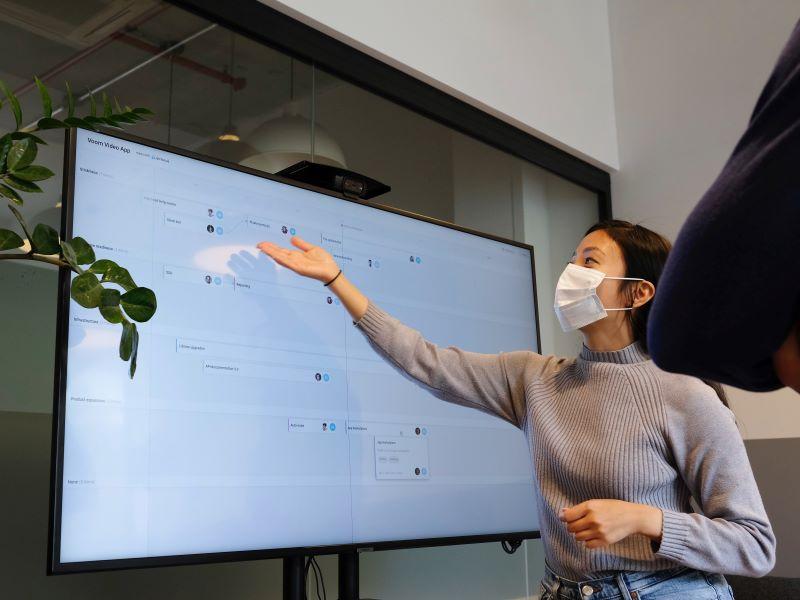Early-career academics often feel unsure about how to advance their careers. And the advice they frequently hear is to simply “work harder”, “follow in the footsteps of our seniors” or “just be patient”. A lack of adequate support for academics in the early stages of their careers can hinder not only career development but also knowledge production. Those who manage them must take a holistic approach to address this.
Build a solid foundation
Early-career academics, especially those who have recently completed their master's or doctoral studies, require access to knowledge, funding and national and international networks. Universities should be required to offer this support through formal policies.
At my institution, we offer funding for early-career researchers, and to ensure fair allocation, one of our policies states that it must not be continually awarded to the same individuals or recipients who have received substantial funding from other sources.
Broadening funding criteria and making it compulsory for your institution to offer grant-writing training for early-career researchers are some other ways to build structural support. Institutions can broaden the criteria for funding in several ways:
- Create a dedicated sub-funding scheme to accommodate all early-career academics, allowing them to compete among their peers
- Broaden the scope of eligible research fields, particularly in the social sciences and humanities
- Monitor and evaluate who is awarded these grants.
Other ways to offer structural support:
- Establish a mentorship scheme involving senior academics
- Request guidance from funding providers on how to write strong proposals that align with their specific criteria
- Introduce clear policies for structuring teaching teams to ensure fair distribution of opportunities
- Support international engagement, such as funding for participation in international conferences and support for publishing in international journals.
Institutions should work with multiple actors, including government institutions and civil society organisations. My institution works with The Indonesian Alliance of Civil Servant Lecturers in the Ministry of Higher Education, Science, and Technology (ADAKSI), which provides financial allowances for civil servant lecturers. This collaboration engages various stakeholders, including university leadership, members of the legislative council and other relevant groups.
- Resource collection: well-being in higher education
- From the lab to life: how to demonstrate research excellence
- Get the word out: four ways to communicate with non-academic audiences
Nurture a supportive culture
We must consider how cultural values affect early-career researchers. While competition, for example, can drive excellence, it can also preset barriers when it results in the prioritisation of individual success within specific subfields at the expense of broader academic collaboration. For some, a competitive culture may be motivating, but for others with a lack of resources and confidence, it can be the opposite.
I suggest a shift from a competitive to a cooperative approach, especially between academics at different stages of their careers. This is because mid-level and senior academics, who have access to greater resources than early career academics, will naturally find it easier to produce new knowledge. As a result, knowledge production becomes dominated by senior academics. Senior academics should work towards forming research and teaching teams with a well-balanced composition of senior and junior members.
There is a risk, however, that some senior academics may perceive such action as a threat to their position, which could potentially hinder progress. Therefore, we must promote solidarity to encourage a more inclusive and collaborative academic environment.
One way to do this is to establish common values and goals through collective dialogue. For this to happen, senior academics should take initiative by facilitating small group discussions comprising early-career and senior academics. If this proves difficult, encourage early academics to form small groups themselves and invite some senior academics to join the discussions.
Other cultural issues to address are seniority and age-related hierarchies. Early-career academics often have to yield to mid-career or senior academics when seeking certain opportunities even though they are often the ones who need the most support. This does not mean that mid- and upper-career academics should be excluded, but rather that opportunities should be distributed based on career development needs rather than seniority.
We can dismantle these hierarchies by providing early-career academics with meaningful opportunities for growth in both teaching and research. For example, we can distribute responsibilities evenly in research teams, rather than assigning early-career academics primarily administrative tasks over more substantive academic work.
Foster knowledge-sharing through informal interactions
Early-career academics need flexible and informal interactions to express their aspirations and negotiate their roles. In the context of early-career academic support, this involves creating spaces for interaction, discussion and experience-sharing among early-career scholars.
These kinds of interactions provide an informal platform for the exchange of knowledge and experiences between mid-career and senior academics and early-career academics. They serve as valuable learning opportunities for early-career academics while also keeping mid-career and senior academics updated on current issues in their departments. The outcomes of these knowledge exchanges can serve as a basis for developing new structural and cultural approaches that support both parties. And these dynamic interactions can pave the way for productive collaborations.
For instance, academic workspaces should include designated spaces for intellectual exchange and collaboration, whether digital or physical, to facilitate flexible and open interactions. Such informal dialogues can foster camaraderie, encourage open discussions and strengthen professional networks. Moreover, they can serve as a foundation for long-term collaborations. Scheduling regular informal gatherings can create a positive form of “pressure”, but it is also essential to remain mindful of the burdens academics may already be facing.
Along with these suggestions, consider organising non-academic activities to build relationships, such as exercise sessions, group trips or simply gathering for meals.
Support for early-career academics requires a genuine commitment to empowering individuals to generate valuable new knowledge. With this holistic support, we can build a robust support system that will allow them and their institutions to thrive.
Estu Putri Wilujeng is a lecturer at the University of Indonesia.
If you would like advice and insight from academics and university staff delivered direct to your inbox each week, sign up for the Campus newsletter.




comment